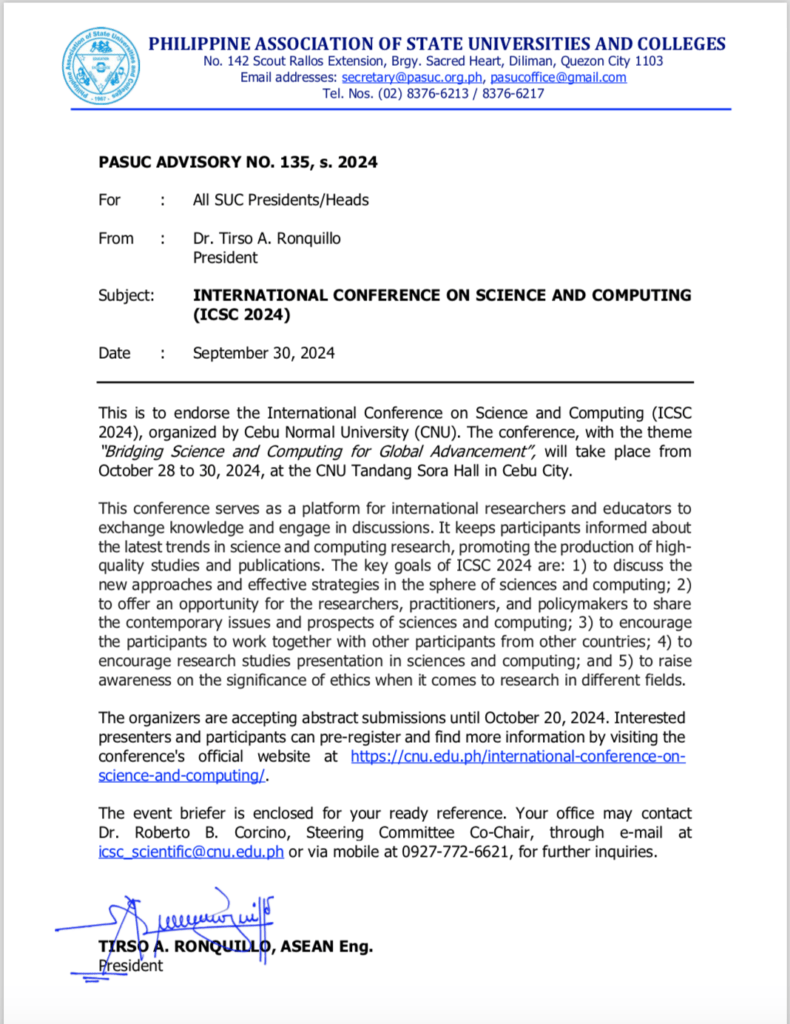CALL FOR PAPERS
October 28-30, 2024
INTERNATIONAL CONFERENCE ON SCIENCE AND COMPUTING
Theme: Bridging Science and Computing for Global Advancement
Organized by the Office of VPRPICE and CCAIS Cebu Normal University, Cebu City, Philippines in cooperation with the National Taiwan Normal University, Taipei, Taiwan
CONFERENCE REGISTRATION FEE
Early Bird Fee
(On or Before October 18, 2024)
After October 18, 2024
Regular – P5000
Student – P2500
Regular – P6000
Student – P3000
Keynote and Plenary Speakers
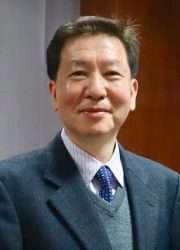
1. Dr. Jein-Shan Chen
(Dean, College of Science and Professor of the Department of Mathematics, National Taiwan Normal University, Taipei, Taiwan)

2. Dr. Wei-Ta Fang
(Vice Dean, College of Science and Director of Graduate Institute of Sustainability Management and Environmental Education, National Taiwan Normal University, Taipei, Taiwan)

3. Dr. Ming-Kang (Brad) Tsai
(Director, Intelligent Computing for Sustainable Development Research Center and Professor of the Department of Chemistry, National Taiwan Normal University)
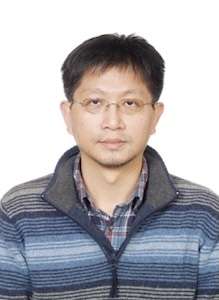
4. Dr. Chun-Chi Lin
( Professor, Department of Mathematics, National Taiwan Normal University)
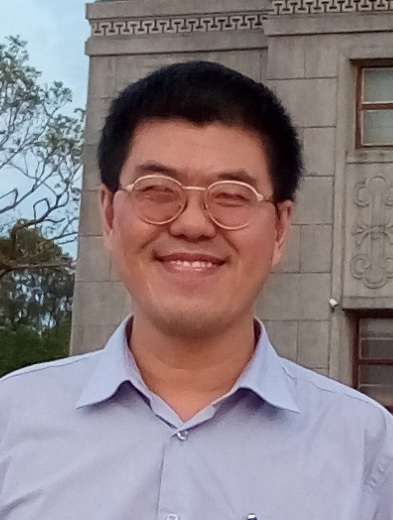
5. Dr. Jyh-Shen Tsay
(Professor, Department of Physics, National Taiwan Normal University)
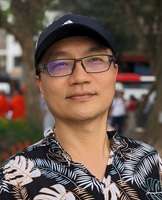
6. Dr. Yi-Hsin Liu
(Associate Professor, Department of Chemistry, National Taiwan Normal University).

7. Dr. Meng-Wan Yeh
(Professor, Department of Earth Sciences, National Taiwan Normal University, Taipei, Taiwan)

8. Dr. Johnny Snyder
(Professor, Computer Information Systems, Davis School of Business, Colorado Mesa University, USA)

9. Dr. Christopher Bernido
(Founding Director. Research Center for Theoretical Physics CVIF, Jagna, Bohol, Philippines)

10. Dr. Elmer Dadios
(University Fellow Manufacturing Engineering and Management Department De La Salle University, Manila, Philippines)
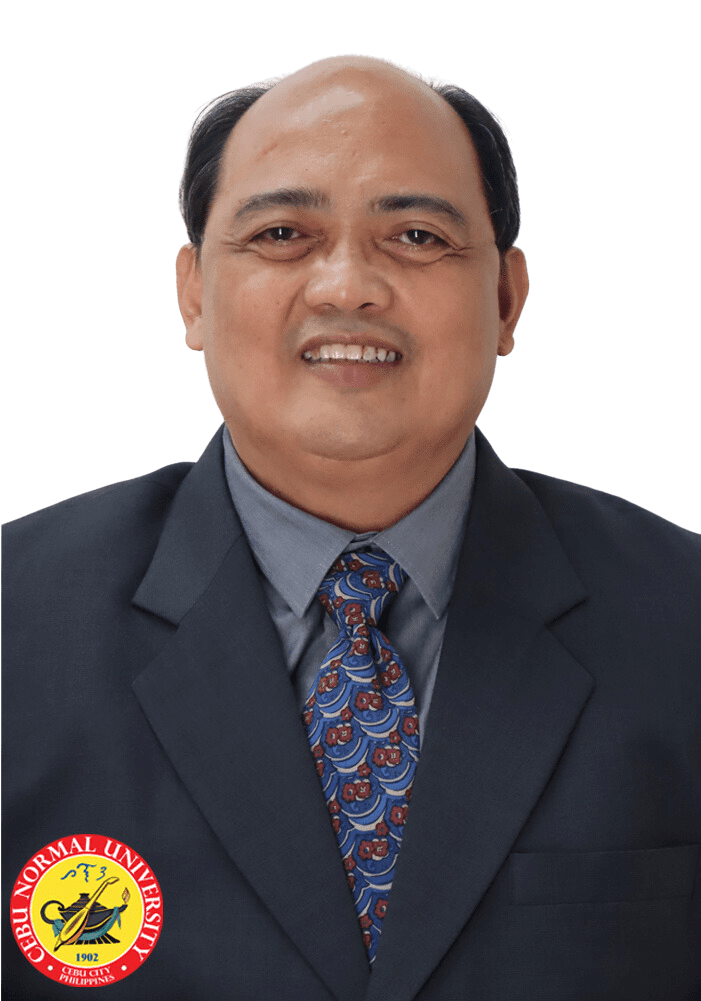
11. Dr. Roberto B. Corcino
(Dean, College of Computing, Artificial Intelligence and Sciences (CCAIS), Cebu Normal University, Cebu City, Philippines)
Conference Strands
Strand 1: Biology and Environmental Science
- This strand focuses on the integration of biological sciences with environmental studies, emphasizing the role of computational tools in understanding ecosystems, biodiversity, and environmental sustainability.
Strand 2: Mathematics and Computer Science
- This strand delves into the foundational and applied aspects of mathematics and computer science, highlighting how mathematical models, algorithms, and computational techniques are driving innovation across various scientific domains.
Strand 3: Physics, Earth Science, and Chemistry
- This strand explores the application of computational methods in physical sciences, earth sciences, and chemistry, focusing on how these methods are transforming our understanding of natural phenomena.
Strand 4: Artificial Intelligence and Data Analytics
- This strand addresses the rapidly evolving fields of artificial intelligence (AI) and data analytics, emphasizing their transformative impact on scientific research and real-world applications
Program Flow
12:00N to 1:00PM
Submit your abstract (in Latex/PDF/MS word format) to Scientific Committee (icsc_scientific@cnu.edu.ph)
Extended Deadline for Submission of Abstracts: October 20, 2024
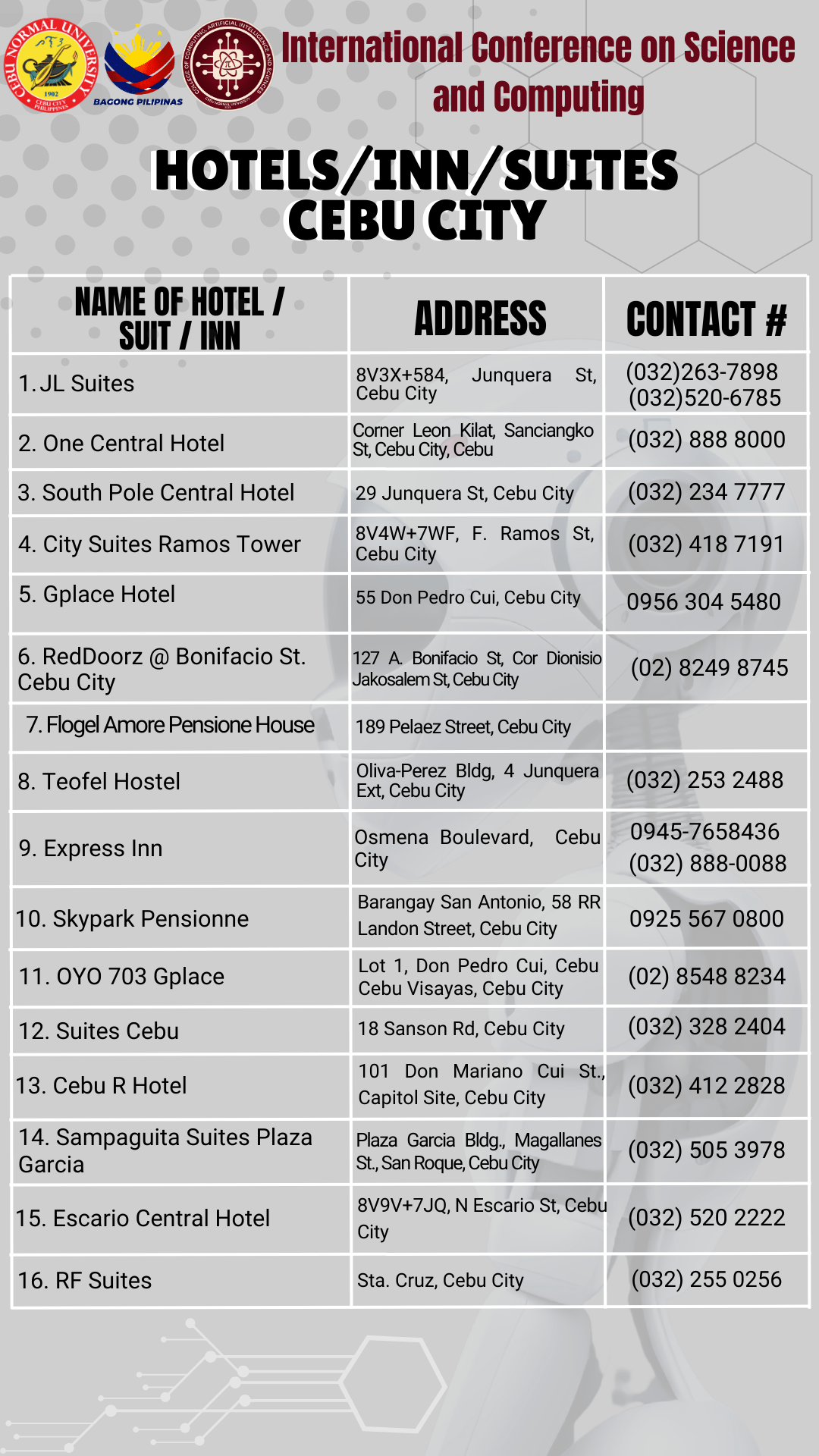
Conference Rationale
In an era where scientific discovery and technological advancements are rapidly converging, the “International Conference on Science and Computing” seeks to create a multidisciplinary platform for researchers, educators, and professionals to share innovative research, technological advancements, and novel approaches across diverse scientific fields. This conference will serve as a vital forum to foster collaboration and explore the integration of computational methodologies within traditional and emerging scientific disciplines. By bringing together experts from various strands, the conference aims to address global challenges, advance scientific understanding, and contribute to the development of solutions that harness the power of science and computing.


